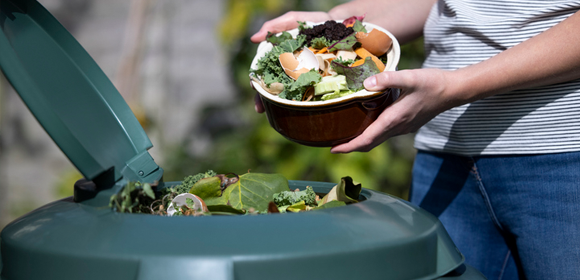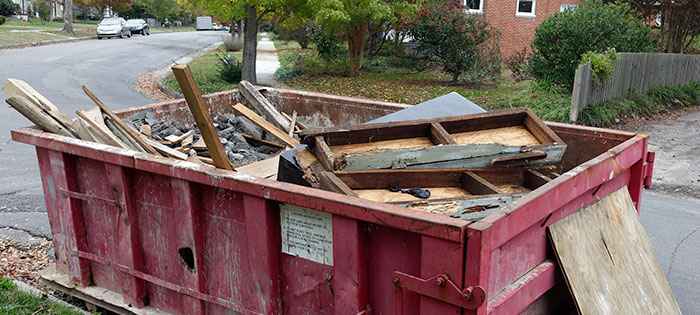
Updated February 23, 2023
Composting is an excellent way to reduce the amount of waste that reaches the trash bin and is a free way to fertilize your lawn and garden.
The key is making sure you know exactly what is compostable and what is not.
We'll go over:
Find dumpster rental in your area

Items You Can Compost
There are many items that end up in regular trash that could be used to create your own compost.
Sticking with "green" (high in nitrogen) and "brown" (high in carbon) items is the general rule of thumb when it comes to composting so that smell and critter attraction doesn't become an overwhelming problem.
Here are some examples of green and brown material:
- Fruits and veggies
- Grass clippings, dead leaves, and pine needles
- Straw and hay
- Cardboard and shredded paper
- Coffee grounds and filters
- Tea bags
- Topsoil, mulch, bark, and wood chips
- Plants
- Eggshells
- Nutshells
- Cow/horse manure
- Wool and cotton rags
- Pet fur
- Hair
- Dryer lint
- Vacuum residuals
Items You Should Avoid Composting
There are a lot of organic materials that break down naturally that could technically be composted, but doing so will recreate a mini landfill on your property.
Avoid these items to avoid an unpleasant stench and pest problem:
- Meat and bones
- Dairy products
- Pet waste and cat litter
- Fats, oils, grease, and lard
- Charcoal
- Anything treated with pesticides
Important Tips for Composting
You'll want to line your compost container with 4-8 inches of coarse brown material to ensure the bottom doesn't rot through.
It's important to keep the compost moist so that the composting organisms and bacteria can break down properly.
Mixing/aerating your compost 2-3 times per week is also an important part of making sure that the composting process doesn't slow down.
Get free dumpster rental quotes from companies near you
Learn more:


